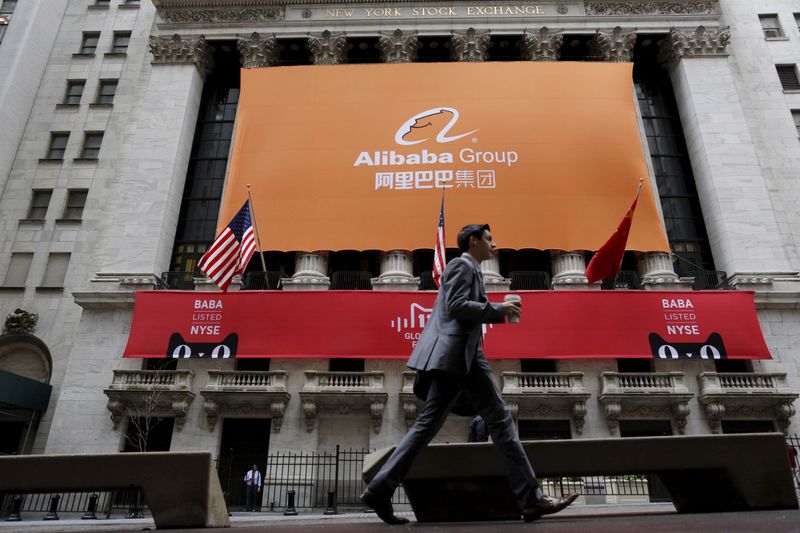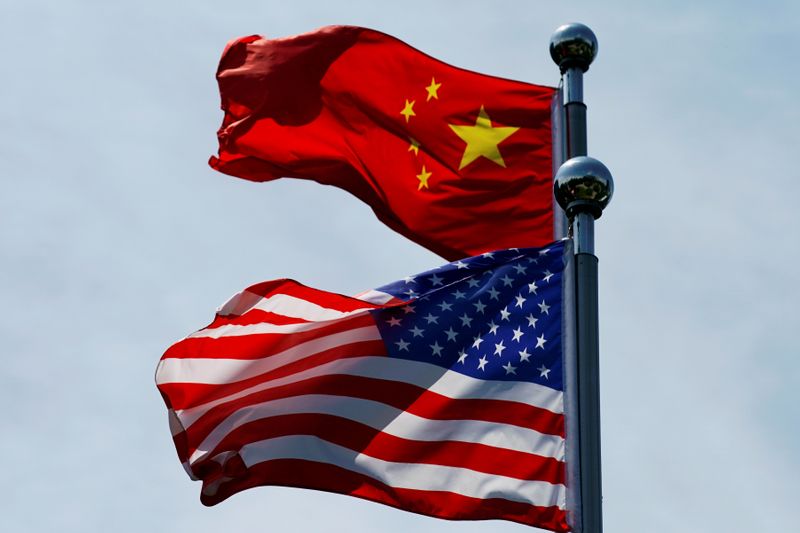By Patricia Zengerle
WASHINGTON (Reuters) - The U.S. House of Representatives passed a law to kick Chinese companies off U.S. stock exchanges if they do not fully comply with the country's auditing rules, giving President Donald Trump one more tool to threaten Beijing with before leaving office.
The measure passed the House by unanimous voice vote, after passing the Senate unanimously in May, sending it to Trump, who the White House said is expected to sign it into law.
"The Holding Foreign Companies Accountable Act" bars securities of foreign companies from being listed on any U.S. exchange if they have failed to comply with the U.S. Public Accounting Oversight Board's audits for three years in a row.
While is applies to companies from any country, the legislation's sponsors intended it to target Chinese companies listed in the United States, such as Alibaba (NYSE:BABA), tech firm Pinduoduo (NASDAQ:PDD) Inc and oil giant PetroChina Co Ltd..
Measures taking a harder line on Chinese business and trade practices generally pass Congress with large margins. Both Democrats and Trump's fellow Republicans echo the president's hard line against Beijing, which became fiercer this year as Trump blamed China for the coronavirus ravaging the United States.
Democratic Senator Chris Van Hollen, who co-authored the bill with Republican Senator John Kennedy, said in a statement that American investors "have been cheated out of their money after investing in seemingly-legitimate Chinese companies that are not held to the same standards as other publicly listed companies."
Kennedy said China was using U.S. exchanges to "exploit" Americans. "The House joined the Senate in rejecting a toxic status quo," he said in a statement.
The act would also require public companies to disclose whether they are owned or controlled by a foreign government.
The American Securities Association praised passage of the bill saying it was necessary to protect Americans from "fradulent companies controlled by the Chinese Communist Party."
'NON-DISCRIMINATORY ENVIRONMENT'
The Chinese embassy in Washington did not immediately respond to a request for comment. Chinese foreign ministry spokeswoman Hua Chunying said before the vote that it was a discriminatory policy that politically oppresses Chinese firms.
"Instead of setting up layers of barriers, we hope the U.S. can provide a fair and non-discriminatory environment for foreign firms to invest and operate in the U.S.," Hua told a news conference.
A spokesman for Alibaba pointed to a comment on the bill from May, when it was passed by the Senate. Chief Financial Officer Maggie Wu told investors the firm would "endeavor to comply with any legislation whose aim is to protect and bring transparency to investors who buy securities on U.S. stock exchanges."
Chinese authorities have long been reluctant to let overseas regulators inspect local accounting firms, citing national security concerns.
Officials at China's securities regulator indicated earlier this year they were willing to allow inspections of audit documents in some circumstances, but past agreements aimed at solving the dispute have failed to work in practice.
Shaun Wu, a Hong Kong-based partner at law firm Paul Hastings, said increased enforcement against Chinese companies was likely even though Democrat Joe Biden will become president in January.
He said if the bill becomes law, "all Chinese companies listed in the U.S. will face enhanced scrutiny by the U.S. authorities and inevitably consider all available options."

This could include listing in Hong Kong or elsewhere, he said. Several U.S.-listed Chinese firms, including Alibaba and KFC China operator Yum China, have recently carried out secondary listings in Hong Kong.
